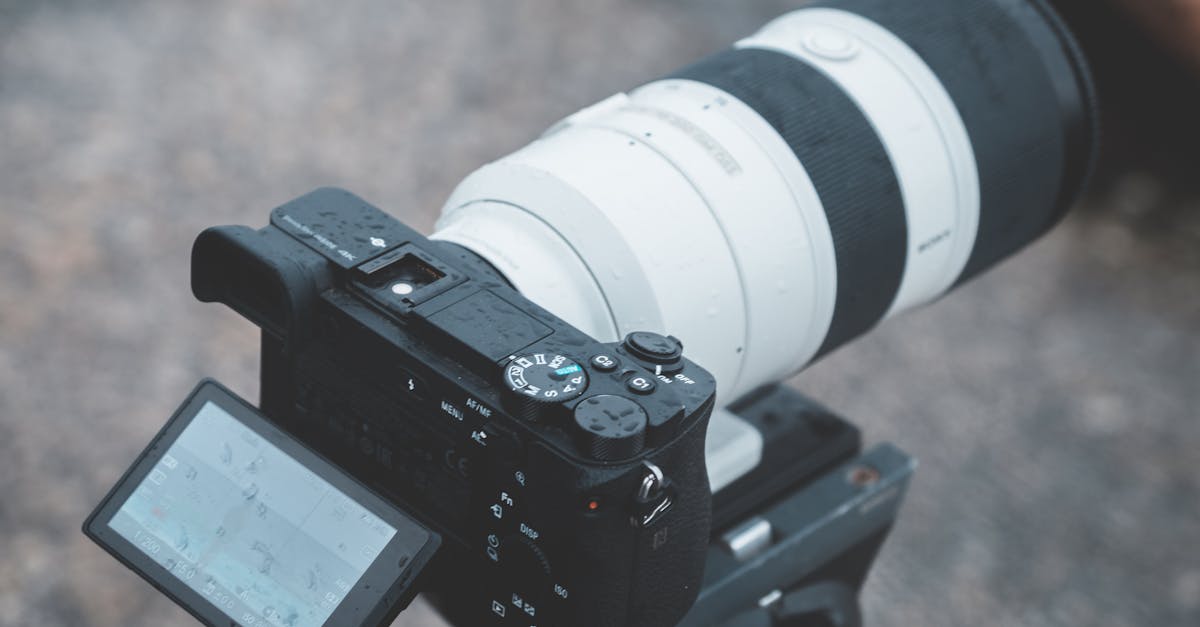
As a beginner plunged into the world of photography, the myriad choices can be bewildering. You may be asking yourself, “Should I go for a DSLR or a mirrorless camera?” To make a decisive choice, it’s essential to dive deeper than just surface-level features and specifications. In this article, we’ll explore the unique attributes, advantages, and potential drawbacks of both types of cameras, all while keeping the beginner's perspective at the forefront.
Before we get into the nitty-gritty, let’s lay the groundwork by defining what DSLR and mirrorless cameras are.
A Digital Single-Lens Reflex (DSLR) camera uses a mirror and prism system to let you see directly through the lens via an optical viewfinder. This classic setup has been popular among photographers for years, providing immediate feedback and a tonal experience that many users appreciate.
On the other hand, a mirrorless camera does just what its name implies—it lacks the mirror system. Instead, it uses electronic viewfinders (EVF) or the rear LCD to display the image sensor's output in real-time. This difference in design is fundamental in determining how these cameras perform and what aspects of photography they excel in.
One significant advantage of mirrorless cameras is their compactness and lighter weight. With no bulky mirror mechanism, mirrorless cameras tend to be slimmer, making them the ideal choice for travel, street photography, or events where a discreet presence can be beneficial.
For beginners who might be embarking on their photography journey trek, a camera that doesn’t weigh them down becomes increasingly attractive. If you’re hiking up a mountain or exploring a new city, that extra weight can be the difference between your wanting to take pictures and feeling fatigued.
where you want to ensure long-lasting performance, battery capacity can severely influence your performance.
DSLRs generally outshine mirrorless cameras in this department. Since DSLRs use optical viewfinders, they don't rely heavily on electronic displays, which can drain battery life quickly. If you find yourself in situations that require extensive shooting—like festivals or family gatherings—having that edge in battery life can alleviate stress and keep you snapping away without worrying about your next recharge.
Conversely, mirrorless cameras can drain their batteries faster during continuous use because they're reliant on electronic viewfinders or constant LCD usage. If you’re an enthusiastic beginner eager to document every moment, consider having a couple of extra batteries handy if you choose a mirrorless model.
One aspect where the competition heats up is autofocus systems. Traditionally, DSLRs have boasted superior phase detection autofocus systems, allowing for faster focus in various lighting conditions. However, mirrorless cameras have made significant strides with advancements in technology, integrating sophisticated autofocus systems that often rival DSLRs.
For beginners, particularly those focused on capturing fast-moving subjects—like kids during a soccer game or your pet during playtime—understanding the autofocus capabilities of your camera can make a world of difference.
If you’re drawn to wildlife photography, sports, or any genre that demands quick focus, researching specific models' autofocus capabilities can significantly influence your choice.
As a beginner, having access to an extensive range of lenses can inspire creativity and encourage experimentation. DSLRs have been around longer, allowing them to develop a vast library of lenses—making it easy to find the right lens for almost any situation.
Mirrorless cameras are catching up, with major manufacturers expanding their offerings rapidly. However, options can still be limited compared to their DSLR counterparts. If your photographic journey includes aspirations toward niche genres—like macro or telephoto photography—ensure you explore your camera choice's lens ecosystem thoroughly, as this will shape your creative endeavors.
Lastly, the learning curve that accompanies your choice can significantly define your overall experience. DSLRs offer a more traditional, hands-on approach that some photographers may find easier to grasp. The tactile nature of adjusting settings with dials and buttons can make learning feel more intuitive.
In contrast, many mirrorless cameras have adopted touchscreen interfaces and built-in guides that can help beginners navigate their way through various features. For those who are tech-savvy or feel comfortable using smartphones, the adaptability of mirrorless cameras may also enhance your learning experience.
Choose your camera based on how you prefer to learn; consider your comfort level with technology and the types of photographic experiences you enjoy.
The choice between DSLR and mirrorless cameras for beginners isn't as straightforward as selecting model A or model B. Understanding the nuances—size, weight, battery life, autofocus capabilities, lens availability, and user experience—will empower you to make an informed decision suited to your unique needs and interests.
Ultimately, both camera types have strengths and weaknesses demanding consideration. The adventure of photography is not defined solely by the equipment you use, but rather how you leverage those tools to express your creativity.
1. Which camera is easier for beginners to use?
Generally, DSLR cameras are often considered more user-friendly due to their traditional settings and tactile controls. However, many entry-level mirrorless cameras come equipped with helpful features that can also simplify learning.
2. Do I need to invest in additional lenses?
While your camera choice dictates lens availability, investing in additional lenses based on your interests can significantly enhance your photographic experience.
3. What’s the best camera brand for beginners?
Popular brands include Canon, Nikon, Fujifilm, and Sony. Each offers models that cater to beginners, so consider your preferences related to size, features, and design.
4. Can I use my DSLR lenses on a mirrorless camera?
Some mirrorless cameras can use DSLR lenses with the aid of an adapter. However, compatibility can vary, so check the specific adapter requirements before purchasing.
5. Should I choose a DSLR or mirrorless camera for video shooting?
Mirrorless cameras have become increasingly favored for video due to their efficient autofocus and the latest technological features. However, some DSLRs also offer excellent video capabilities. Consider your specific needs for video before choosing.